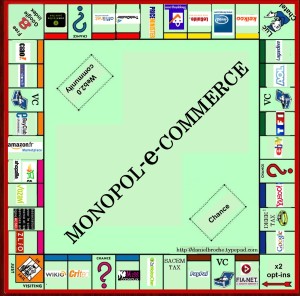June 10th, 2014 by Elma Jane
Local businesses with brick-and-mortar stores have not been early adopters of ecommerce. But, with the proliferation of mobile devices and with changes in how consumers research and buy products, most local businesses now have websites, many of them mobile optimized. Smart brick-and-mortar retailers invest in local search engine optimization to ensure that their stores are found when a local shopper searches on products that they sell. More aggressive retailers also invest in pay-per-click advertising on Google to ensure that their store names, phone numbers, and addresses are visible to a local shopper that is researching on a smartphone. Google is by far the primary search engine used by mobile shoppers. Google favors mobile friendly online stores and rewards mobile sites with high search rankings. The next logical step for local retailers is investing in on online store.
There are several reasons:
1. Having an online store will help local retailers optimize Google rankings for specific products and brands.
2. Being able to show that an item is in stock may eliminate competitive shopping.
3. Eventually local retailers could sell products to consumers outside the retailers’ immediate area, and thus expand their business.
Many local businesses are hesitant to open an online store. Here is why:
1. Local businesses are typically unfamiliar with running an ecommerce business.
2. Have little ability to ship or fulfill online orders.
3. Cannot accommodate sales tax collection outside their local area.
4. Avoid the investment required.
To be sure, adding an online store is not for every local business. But, if a local retailer offers a unique set of products, she may want to evaluate the concept.
Posted in Best Practices for Merchants, e-commerce & m-commerce Tagged with: brands, brick and mortar, brick-and-mortar stores, consumers, ecommerce, google, Mobile Devices, mobile optimized, mobile sites, online orders, online stores, pay-per-click, products, sales tax, search engine, search engine optimization, smartphone, websites
May 13th, 2014 by Elma Jane
Keeping track of invoices and shipping data and making the information easily accessible, traditionally has not been so easy, even though PayPal has made it simpler for businesses to buy and sell goods and services online.
To address the issue, Microsoft has created a PayPal invoicingtemplate, which ExcelTemplates.net also has begun offering for free as part of its new line of templates and spreadsheets. With the new template, companies of any size may keep an exact digital record of their business transactions.
The PayPal invoice template from Microsoft is the all-in-one solution for companies looking for ways to streamline their invoicing process. The PayPal invoice template comes ready to use immediately after downloading. You can type, print or ship with just a few clicks and get back to business in no time.
When using the template, businesses type in the item name, a description of the item, item quantity, unit price, total amount and tax. The PayPal template also serves as a time-saving calculator that will calculate tax, totals and shipping charges for order of any size.
Companies also can add any applicable discounts or sales tax rates to come up with a final total. They also can add any special terms and conditions for the transaction, any special notes for the recipient and add a special memo for the company if necessary that won’t seen by the recipient.
Posted in Best Practices for Merchants, Financial Services Tagged with: data, discounts, ExcelTemplates.net, invoicing, Microsoft, PayPal, Rates, sales tax, sales tax rates, shipping charges, shipping data

